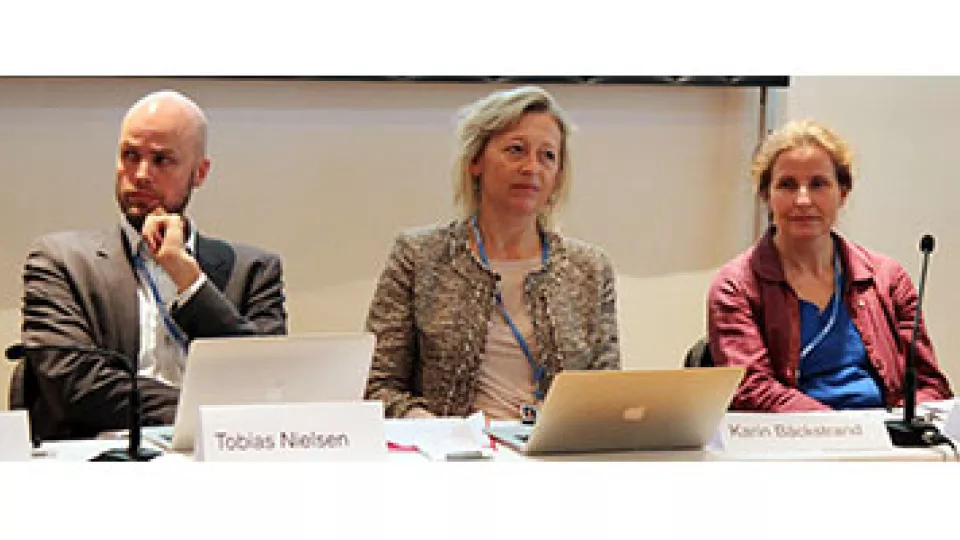The Bonn Climate Change Conference side-event "Carbon footprints for effective climate policy on international trade" was arranged by Lund University on 11 June 2015.
Chair Karin Bäckstrand, Stockholm University, introduced the event. Magnus Jiborn, Lund University, presented on a new methodology for accounting for emissions, ‘TCBA,’ which is a “technology-adjusted” consumption-based accounting (CBA) measure. He stated that this methodology fulfils three conditions that neither standard CBA nor territorial accounting systems meet: countries should be accountable for factors they can influence; countries should not be rewarded for behavior that increases emissions; and the sum of national emissions should equal global emissions. He highlighted that fulfillment of these conditions enables national greenhouse gas accounting to reflect how a country’s behavior affects global emissions, providing useful feedback for policymakers.
Tobias Dan Nielsen, Lund University, talked about the implications of TCBA measures for allocating responsibilities on a global level, saying it was an innovative idea with the potential for several positive impacts, including: dealing with carbon leakage and double counting; providing incentives for decision makers to make improvements in specific sectors based on TCBA analyses; bringing trade into the discussions; and “encouraging no backtracking” due to the basis of the measure on global average technological advancements which will encourage increased ambition as this average increases.
Helén Axelsson, Swedish Steel Producers' Association, presented the perspective of the steel industry, highlighting that global demand for steel is predicted to double by 2050, from 1400Mtonne in 2010 to 2800Mtonne. She highlighted advances in technology that enable more efficient steel to be produced, with the potential for relative emissions reductions. She suggested that specialization was beneficial for global emissions, encouraging countries to “do what you are good at, even better.”
Daniel Engström Stenson, Forum for Reforms and Entrepreneurship (FORES), highlighted the importance of caution in the usage of the term “carbon leakage,” since increasing trade-related emissions can simply be the result of increased consumption of goods. He warned against placing discussions on new accounting methods into the climate negotiations, noting that this might add more complication to an already complex process, but encouraged further discussions outside of the negotiating context, observing the value of TCBA in allowing countries to assess their own domestic policies.
Participants then discussed, inter alia: the drivers of motivation for the steel industry to reduce emissions, including the EU Emissions Trading System; rewarding countries for having well developed infrastructure compared to concerns about the impact of TCBA on technology-poor developing countries; drivers for efficiency improvements of products in industry; and comparative advantage at the local level.


